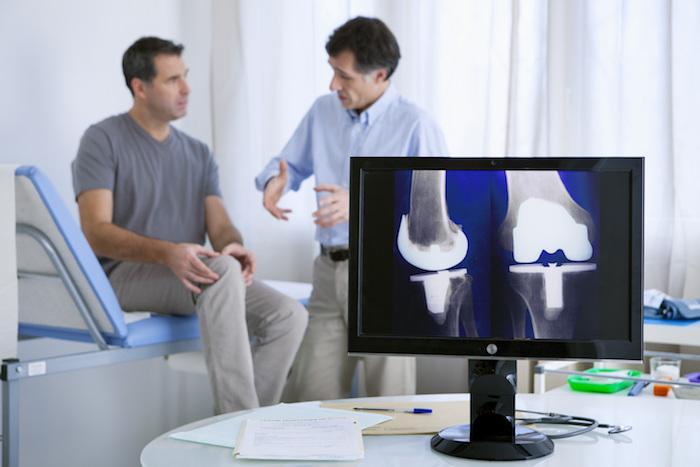
Tackle Achy Knees With Cortisone Injections

Ongoing knee pain can be quite debilitating. Your knees support you as you accomplish daily tasks. If you start limping to favor the knee and continue to do so over some time, you may also begin to have back pain and other musculoskeletal issues.
Treating knee pain early so that your walking gait doesn’t change could help avoid other pain types in your limbs and joints. Our board-certified orthopedic surgeons at Coastal Empire Orthopedics treat all knee pain types, from arthritis to torn tendons to ligament injuries. We use physical and imaging tests to diagnose your pain’s root cause and then develop a plan to relieve it.
If you’re having intense pain, we can give you a cortisone shot to calm your symptoms while developing a longer-term plan.
What is cortisone?
Cortisone is a steroid hormone. The natural form of cortisone, called cortisol, is found in your body. It’s produced by the cortex, or outer side of the adrenal gland, and helps your body respond when you’re under stress.
How does cortisone help my knee?
The cortisone that your physician injects is a synthetic, longer-lasting form of the natural cortisone in your body. The cortisone reduces the swelling and inflammation that is causing your pain, and when it starts working inside your body, your pain diminishes. You can move more easily.
What types of knee issues call for a cortisone shot?
Suppose you have osteoarthritis, post-traumatic arthritis from a previous injury, rheumatoid arthritis or bursitis. In that case, you may need a cortisone shot from time to time if you have a significant flare-up. If you have a knee injury from playing sports or wear and tear, such as a meniscus or ligament tear, you might need the shot to calm the pain and inflammation.
Does the cortisone shot hurt?
Your physician cleans the area and injects or sprays the skin with a numbing agent to lessen the cortisone shot’s sensation. Lidocaine is usually included in the cortisone shot as well. Your knee may hurt for a few seconds, but that’s all.
What should I know about cortisone shots?
A cortisone shot is a temporary solution to your knee pain. It’s just one treatment in an overall plan to bring your joint back to health. It doesn’t stop arthritis progression. At the appropriate time, your doctor likely recommends physical therapy to strengthen the muscles around the knees and help you regain mobility.
If you have mild or moderate arthritis, the shot’s effect can last three months or longer. You’re limited to having a cortisone shot in your knee to four times a year. Too much cortisone can worsen the damage to your knee joint. If it’s time for a partial or full knee replacement, a cortisone shot can ease your pain and allow you time to prepare for the surgery.
Call Coastal Empire Orthopedics or book an appointment online for expert treatment to relieve your knee pain and for all of your orthopedic issues.
You Might Also Enjoy...


Platelet-Rich Plasma (PRP) and Its Role in Pain Relief

Why Do My Hands Cramp Up so Often?

What to Expect With Your Tendinitis Treatment

How Nerve Repair Can Boost Your Wellbeing

